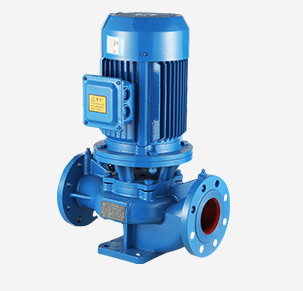Latin
- Afrikaans
- Albanian
- Amharic
- Arabic
- Armenian
- Azerbaijani
- Basque
- Belarusian
- Bengali
- Bosnian
- Bulgarian
- Catalan
- Cebuano
- Corsican
- Croatian
- Czech
- Danish
- Dutch
- English
- Esperanto
- Estonian
- Finnish
- French
- Frisian
- Galician
- Georgian
- German
- Greek
- Gujarati
- Haitian Creole
- hausa
- hawaiian
- Hebrew
- Hindi
- Miao
- Hungarian
- Icelandic
- igbo
- Indonesian
- irish
- Italian
- Japanese
- Javanese
- Kannada
- kazakh
- Khmer
- Rwandese
- Korean
- Kurdish
- Kyrgyz
- Lao
- Latin
- Latvian
- Lithuanian
- Luxembourgish
- Macedonian
- Malgashi
- Malay
- Malayalam
- Maltese
- Maori
- Marathi
- Mongolian
- Myanmar
- Nepali
- Norwegian
- Norwegian
- Occitan
- Pashto
- Persian
- Polish
- Portuguese
- Punjabi
- Romanian
- Russian
- Samoan
- Scottish Gaelic
- Serbian
- Sesotho
- Shona
- Sindhi
- Sinhala
- Slovak
- Slovenian
- Somali
- Spanish
- Sundanese
- Swahili
- Swedish
- Tagalog
- Tajik
- Tamil
- Tatar
- Telugu
- Thai
- Turkish
- Turkmen
- Ukrainian
- Urdu
- Uighur
- Uzbek
- Vietnamese
- Welsh
- Bantu
- Yiddish
- Yoruba
- Zulu
Telephone: +86 13120555503
Email: frank@cypump.com
Dec . 29, 2024 01:45 Back to list
Hydraulic Pump Solutions for Efficient Slurry Tanker Operations and Performance Optimization
Hydraulic Pumps for Slurry Tanker Operation
In the world of agricultural, mining, and construction industries, the management and transportation of slurries—mixtures of liquid and solid materials—pose considerable challenges. Whether it's dealing with wastewater, slurry from mining operations, or agricultural waste, the efficient movement and handling of these materials are critical. Hydraulic pumps play a pivotal role in slurry tanker operations, offering reliability, efficiency, and the capability to handle the complex demands of these substances.
Understanding Hydraulic Pumps
Hydraulic pumps are devices that convert mechanical energy into hydraulic energy, generating flow to transport fluids. They operate based on Pascal's principle, where pressure applied to a confined fluid is transmitted undiminished throughout the fluid. In slurry tanker applications, these pumps are invaluable. They can handle the thick, viscous, and abrasive nature of slurries, ensuring smooth and consistent flow without clogging.
Types of Hydraulic Pumps
In slurry tanker operations, several types of hydraulic pumps are commonly utilized, including gear pumps, piston pumps, and diaphragm pumps.
1. Gear Pumps These are simple and robust, known for their efficiency at delivering high pressures. The interlocking gears within the pump draw fluid in and push it out. Their design makes them suitable for handling various slurries, although they may struggle with highly abrasive materials which can wear down the gears over time.
2. Piston Pumps Renowned for their ability to handle high pressures and shear-sensitive materials, piston pumps are ideal for thick slurries. They work by utilizing reciprocating pistons, creating a vacuum that draws the slurry in, followed by a pressurized discharge. While they are effective for challenging applications, they can be more complex and costly to maintain.
3. Diaphragm Pumps These pumps offer a unique advantage when handling corrosive or abrasive slurries. They use a flexible diaphragm to create a pumping action, enabling them to seal the fluid and minimize the risk of leaks. Diaphragm pumps are also self-priming and can handle slurries with high solid content efficiently.
'hydraulic pump for slurry tanker operation'

Benefits of Hydraulic Pumps in Slurry Tanker Operations
1. Efficiency and Performance Hydraulic pumps are designed for high efficiency, enabling slurry tankers to operate effectively and maintain consistent flow rates. This enhances productivity, allowing operators to transport more materials in less time.
2. Versatility Hydraulic systems can be adapted for various applications and materials, making them suitable for different types of slurry—be it thick mud from construction sites or liquid fertilizers in agriculture.
3. Durability The robust construction of hydraulic pumps ensures longevity, even when handling abrasive materials. With proper maintenance, these pumps can withstand the rigors of demanding environments, minimizing downtime and reducing repair costs.
4. Control and Precision Hydraulic systems offer precise control over the flow and pressure of the slurry, allowing operators to adjust the pumping characteristics according to specific needs. This control is essential in preventing overloading the tanker and maintaining safety during operations.
5. Safety Features Many hydraulic pumps come equipped with safety mechanisms to prevent leaks and spills—critical factors when dealing with potentially hazardous materials. This enhances the safety of workers and the environment.
Conclusion
Hydraulic pumps are an integral component of slurry tanker operations, providing the necessary power and efficiency to manage the complexities of slurry transport. Their varied designs offer options suitable for different slurry types and operational demands. As industries continue to evolve and the need for effective slurry management grows, the reliance on hydraulic pumps will undoubtedly increase, ensuring safe, efficient, and reliable transport of these vital materials. As technology improves, we can expect even more innovations in hydraulic systems, further enhancing their role in supporting sustainable and efficient operations across many sectors.
-
Reliable Non-Clog Sewage Pumps with GPT-4-Turbo Tech
NewsAug.04,2025
-
High-Performance Air Pumps for Sand & Gravel | Efficient Transport
NewsAug.03,2025
-
ISG Series Vertical Pipeline Pump - Chi Yuan Pumps Co., LTD.|Energy Efficiency, Corrosion Resistance
NewsAug.03,2025
-
ISG Series Pipeline Pump - Chi Yuan Pumps | Energy Efficiency&Compact Design
NewsAug.03,2025
-
ISG Series Vertical Pipeline Pump - Chi Yuan Pumps Co., LTD.|High Efficiency, Low Noise, Durable
NewsAug.02,2025
-
ISG Series Vertical Pipeline Pump - Chi Yuan Pumps | High Efficiency, Low Noise
NewsAug.02,2025










